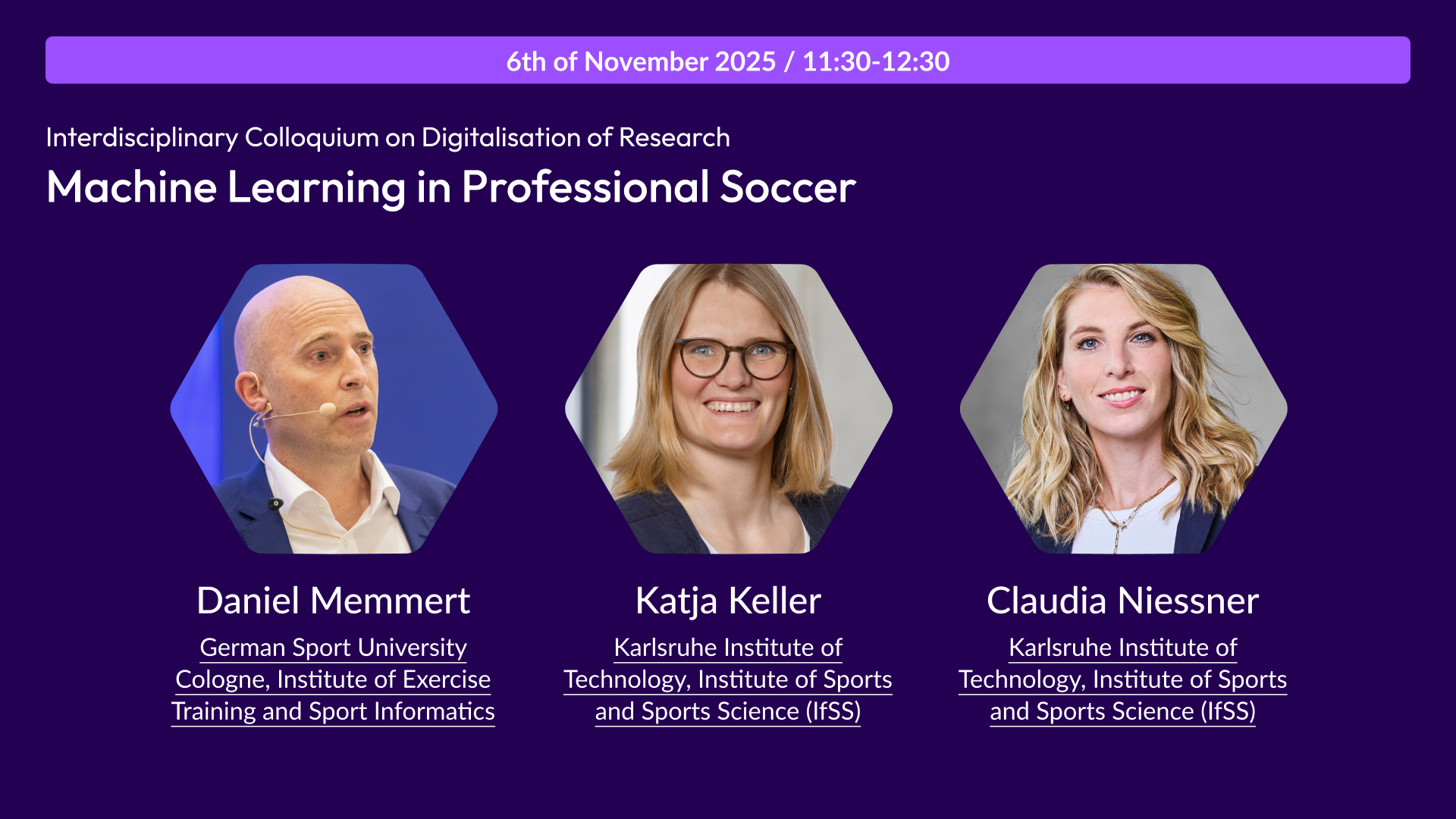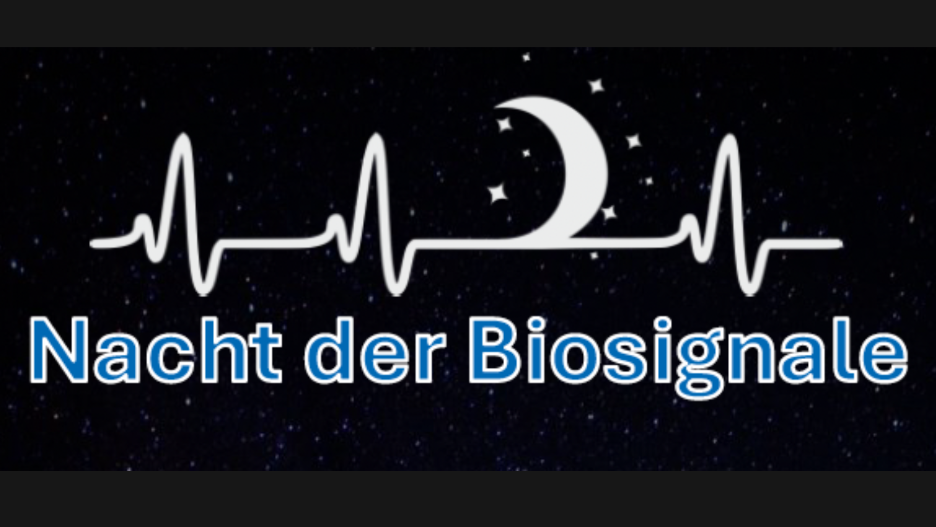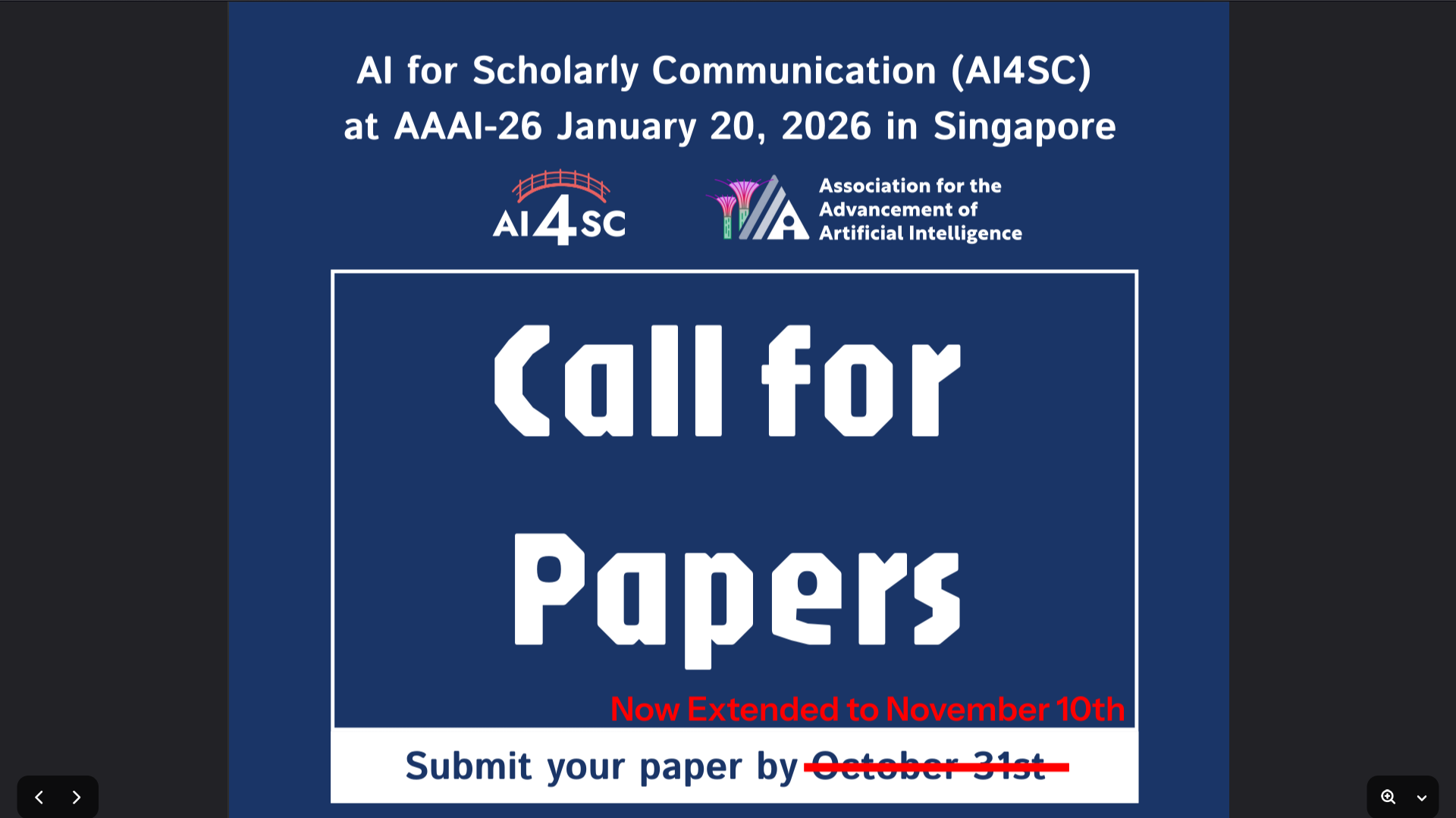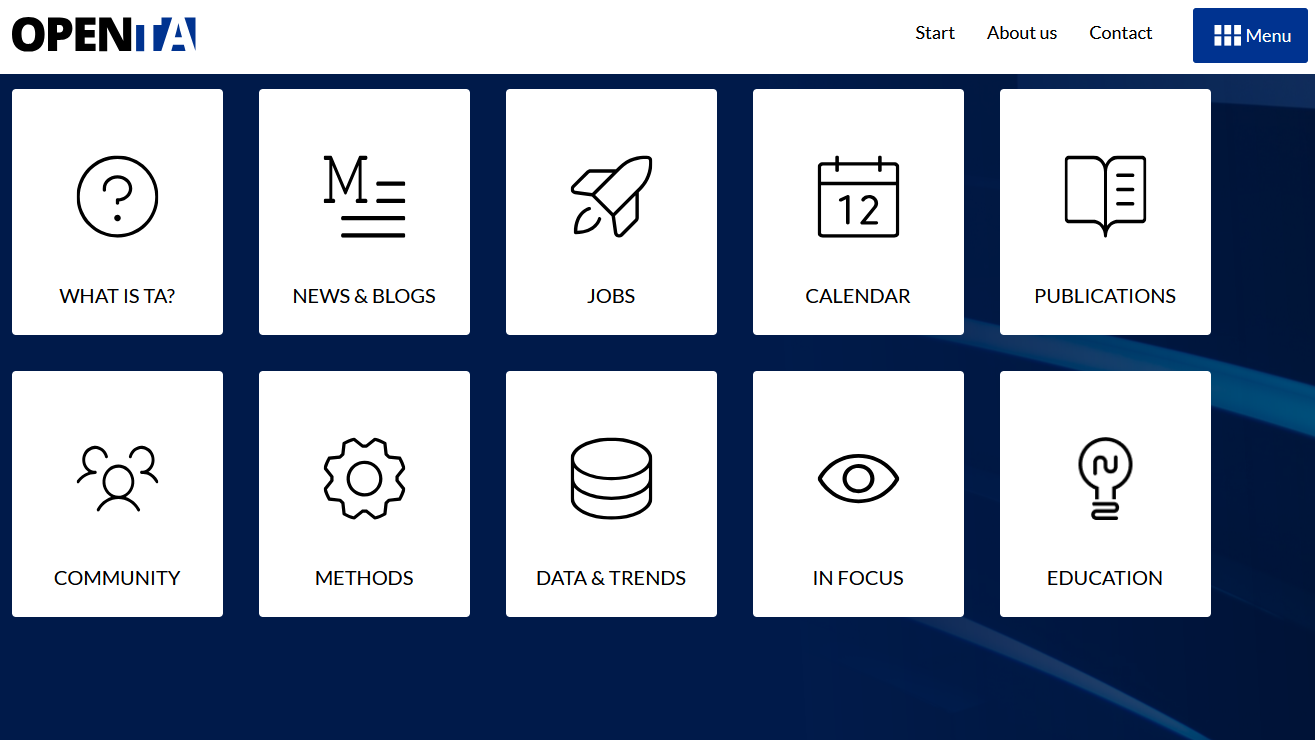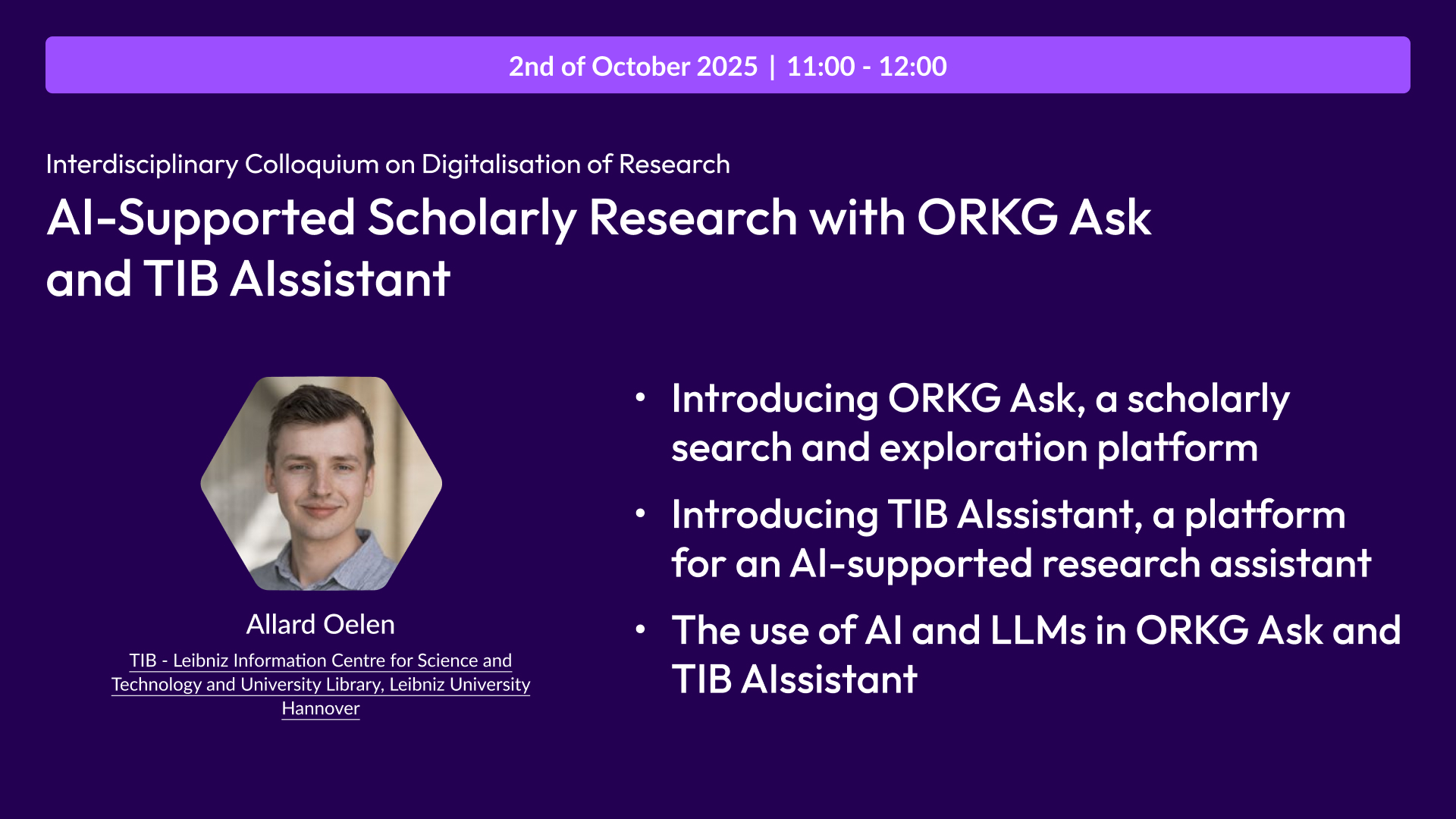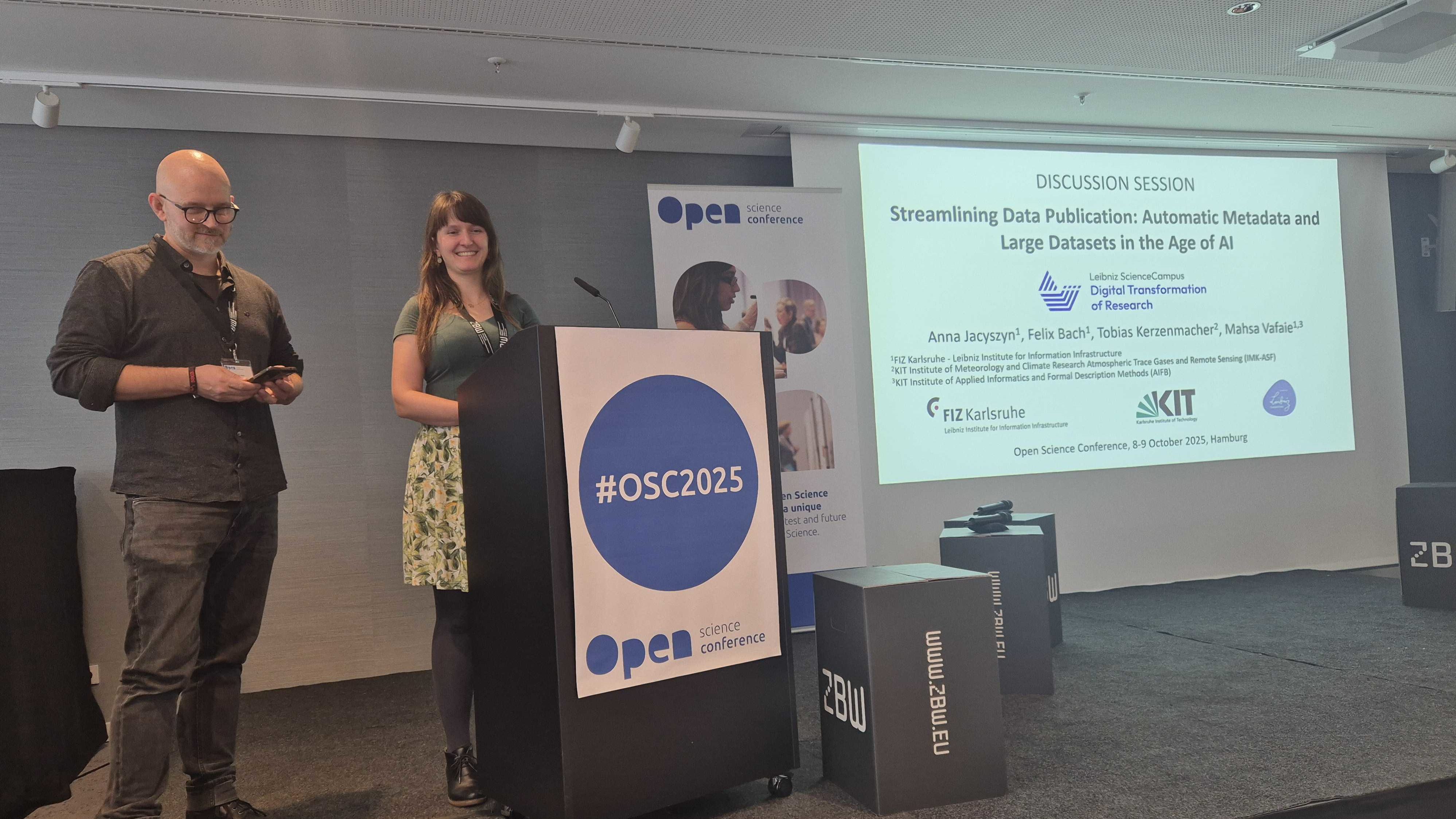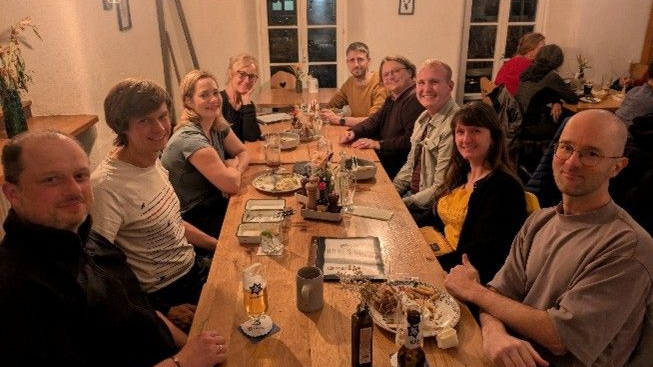November Colloquium with Daniel Memmert
Join us for the next Colloquium - we move to the field of sports science! Our special (online) guest will be Daniel Memmert who will give a talk on "Machine learning in professional soccer". This edition's hosts, Katja Klemm and Claudia Niessner will welcome you in person at KIT IfSS and give an introduction on the DiTraRe use case "Sensitive data in sports science". Please note a slightly changed time frame: we start at 11:30. Register for the event now.
Upcoming: DiTraRe Symposium on Digitalisation of Research
We are excited to invite you to the DiTraRe Symposium, hosted by our Leibniz Science Campus. The DiTraRe Symposium will take place on December 2-3, 2025 as a noon-to-noon event, at the Centre for Arts and Media (ZKM) in Karlsruhe. The event will focus on digital research practices, including the use of AI and open science. Expect an inspiring keynote, dynamic panel discussions, and interactive sessions that encourage lively exchange and collaboration. We look forward to seeing you there!
Register to the event now and save your spot via EventBrite.
Upcoming: “Nacht der Biosignale”
On November 7, 2025, the Triangel in Karlsruhe invites you from 5–10 p.m. to the second “Nacht der Biosignale”, featuring exciting lectures and discussions. The event will be live-streamed and held across 14 locations. Nacht de Biosignale is co-organised by our partners from KIT IBT.
Lea Sophie Singson (FIZ Karlsruhe, DiTraRe) will give a fascinating talk and join a panel discussion on “Biosignals in the Age of AI” (in German). Lea will contribute a legal perspective, adding valuable insights to this interdisciplinary dialogue.
More information on the event website.
Upcoming: EXTENDED Call for Papers of the 2nd AI4SC @ AAAI 2026
Deadline extended until 10th of November for the 2nd AI4SC bridge at AAAI 2026!
The 2nd Bridge on Artificial Intelligence for Scholarly Communication (AI4SC) of which our coordinator Anna Jacyszyn is the main chair will be co-located with one of the largest AI conferences in the world - the Annual AAAI Conference on Artificial Intelligence. The next edition will take place in January 2026 in Singapore. The call for papers is out now and we accept submissions from interdisciplinary researchers. Find more info on the AI4SC 2026 website and join our LinkedIn group!
Topics of special relevance for the bridge include, but are not limited to:
Best practices and lessons learned in applying AI to scholarly communication
Intertwining knowledge graphs and neural approaches (neurosymbolic systems)
Design and development of scholarly methodologies and tools for knowledge extraction and organization
Ethics, responsibility, and trust in AI-driven scholarly communication
Measuring and evaluating the impact of AI in scientific research
Upcoming: KHYS Future Days | Research in Transition – How AI is Changing Scientific Methods
On Wednesday 19 November (9:00 – 10:30, online) Anna Jacyszyn will represent DiTraRe during the panel Research in Transition – How AI is Changing Scientific Methods which is a part of the KHYS Future Days.
Artificial Intelligence (AI) is not just transforming various aspects of our working environment - it is reshaping the way we do research, often becoming an integral part of research projects. But what does this mean in practice? And what could it mean for the future?
In this online event, we will explore how artificial intelligence is already influencing, and will continue to influence, scientific research methods and everyday academic workflows. In short talks, experts will share their perspectives and experience.
Following the talks, participants will have the opportunity to ask questions and we will dive into a moderated discussion with the speakers.
Whether you're already using AI tools in your research or just beginning to explore the topic, this event offers both inspiration and practical insights.
Speaker: TT-Prof. Rudolf Lioutikov (IAR), Dr. Anna Jacyszyn (FIZ Karlsruhe), Kevin Schumacher (Büro GWP)
Format: Online
Target group: Doctoral researchers, Postdocs
Max. participants: 80
Register here.
The specialist portal of the Network for Technology Assessment, www.openta.net, has a completely new look!
We redesigned the page and expanded its content and language.
openta.net has a new design and content, offering ten categories relating to the field of Technology Assessment (TA) in German and English. As well as daily news, blog posts and event information on conferences, seminars and lectures, the portal also highlights publications and new releases, scientific journals, a collection of methods, relevant databases and repositories, and short reports. Other sections provide information on job vacancies, student and PhD programmes as well as opportunities to become part of the TA community.
Previous Colloquium: 2 October with Allard Oelen
Our previous Colloquium concentrated on AI and LLMs in Open Research Knowledge Graph (ORKG) with Allard Oelen, TIB - Leibniz Information Centre for Science and Technology and University Library, Leibniz University Hannover. Our special guest introduced ORKG Ask, a scholarly search and exploration platform, and TIB AIssistant, a platform for an AI-supported research assistant. Find presentation slides on our webpage and the video recording on our YouTube channel.
Recent: DiTraRe discussion session at the Open Science Conference 2025 in Hamburg
“Would you trust AI more than a human to create descriptive metadata?”
This warm-up question already revealed how divided we are when it comes to AI advancements in research data management. Most of our audience (67%) was in favour of “Human-curated, AI-generated” metadata. This was followed by 21% who voted for exclusive metadata generation by “humans”, and 8% “AI-curated, Human-generated”.
“Do you think that with the current AI developments, in 10 years from now we will NOT need metadata anymore?”
This question really polarised the discussion. 30% of the audience agreed with this statement, while 40% think that metadata will still be needed in the future. We discussed reasons for and against, mentioning that especially for sensitive data, AI cannot replace humans in annotating the data. In this case, ethical aspects come into play. We emphasised that in humanities, metadata creation is part of the research process and requires expertise. Also, the boundary between data and metadata in humanities is fuzzy. When deploying LLMs to create metadata, we also need to be mindful of human vs. AI-generated data. Looking into the future, we noted that in 10 years the LLMs will be much more mature than we imagine today. As AI-generated metadata grows, questions of reliability and responsibility will become increasingly important for ensuring originality and trust in research data.
A report on the session will be published as a collaboration between session organisers and volunteering participants. The session presentation is available on Zenodo.
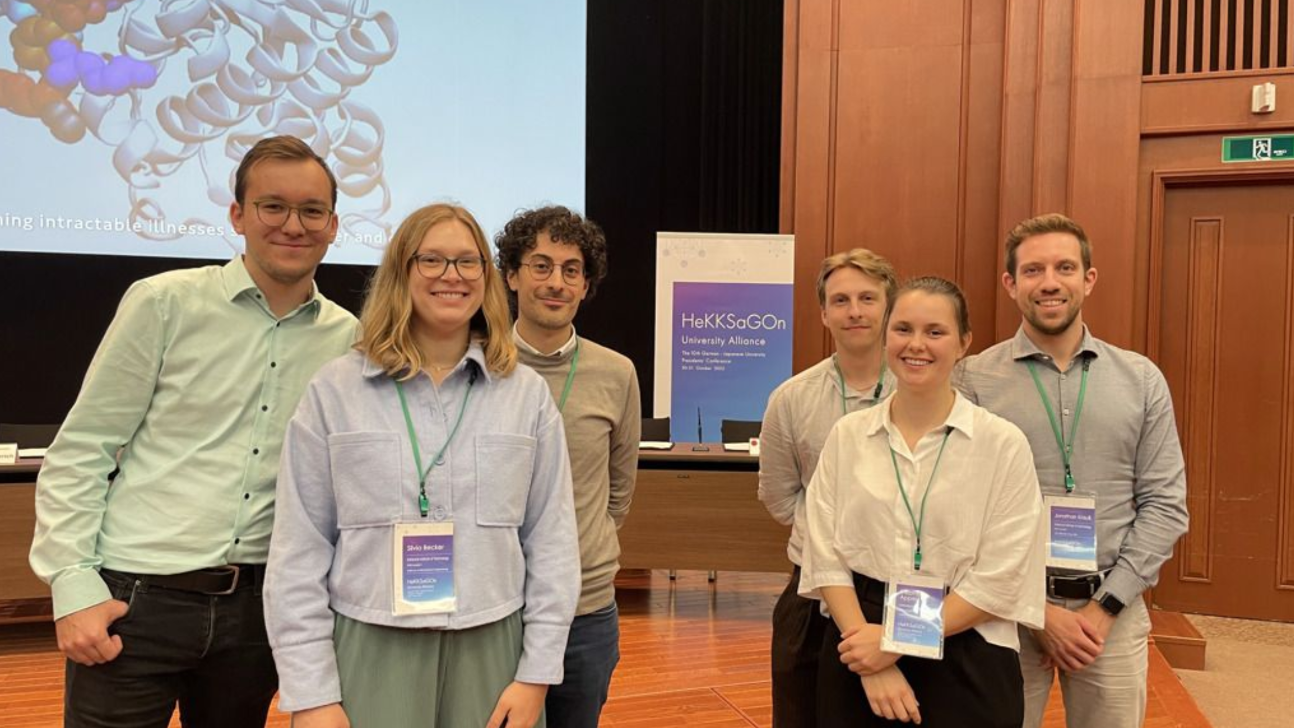
Recent: KIT IBT at 10th German-Japanese University Presidents’ Conference
From October 30–31, six PhD students from IBT participated in the 10th German–Japanese University Presidents’ Conference under the theme “Transdisciplinary Initiatives and Alliance Building for Global Futures.”
Hosted within the HeKKSaGOn network, the event strengthened the collaboration with Japanese partner universities. HeKKSaGOn unites six leading institutions — Heidelberg, Göttingen, Karlsruhe, Kyoto, Osaka, and Tohoku — to foster research partnerships and share best practices.
Recent: Leibniz Science Campi coordinators meeting in Saarbrücken
Community is everything - that's the driving thought behing the DiTraRe and that was also the reason why our colleague Anna Jacyszyn (DiTraRe coordinator) went to Saarbrücken yesterday to join the Leibniz Science Campi Coordinators Meeting hosted by the INM - Leibniz Institute for New Materials. Check out the Leibniz Science Campus 'Living Therapeutic Materials' (LifeMat).
Here's what Anna has to say about the meeting:
"We had a very fruitful time exchanging on our experiences with Leibniz Science Campi (LSC). We did find really many common points, i.e. we all agreed that the first two years are 'birth pains', as it takes a lot of effort to establish a cooperation between many research groups involved in each Campus. We learned a lot from the more experienced coordinators and also discussed ideas on making LSC sustainable once the funding period is over. We all agreed that each Campus brings very interesting ideas and topics and adds value to the research community in multiple ways. Thanks to the meeting I gained significant connections which will surely lead to a more intense cooperation between DiTraRe and other Campii."
Many thanks to everyone involved! 👏
